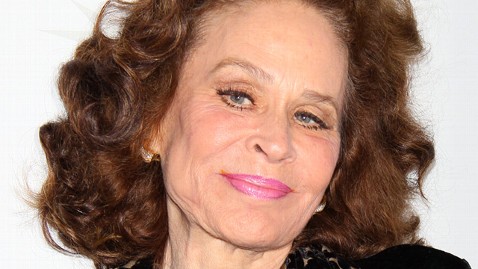Karen Black Cancer Fundraiser Takes Off

JB Lacroix/Getty Images
Actress Karen Black, who has been battling cancer for more than two years, has turned to the public and crowd funding to help her pay for an experimental treatment - and, in less than two weeks, has already surpassed her goal.
"If you've ever enjoyed her work, now is your chance to reach back to Karen - because Karen needs your help," her husband Stephen Eckelberry wrote on the a GoFundMe webpage titled " Help Karen Beat Cancer," launched on March 14. As of this morning, the site had already raised over $36,000, surpassing the $32,000 goal.
"Karen and are touched beyond belief," Eckelberry wrote in a post Monday. "THIS IS AMAZING THANK YOU SO MUCH."
The money will be used for an experimental treatment in Europe, Eckelberry said, promising to divulge more details as "we get involved."
"Right now, it is her best and only shot," he wrote, adding that she must travel in the next few weeks before she is too weak to go at all.
Black, 73, the star of over 40 movies, who is best known for the 1970s films "Five Easy Pieces," for which she received an Oscar nomination, "Airport 1975," and "Nashville," was diagnosed with ampullary cancer - at the point where the bile duct and pancreatic duct meet - in November 2010.
The actress immediately had a third of her pancreas removed, Eckelberry wrote on the fundraising page. Following extensive chemotherapy and radiation, she was declared disease-free in July 2011. By that December, another tumor had been discovered and surgery followed. The cancer began spreading in June 2012. After alternative treatments, Black was left "completely debilitated" and "mostly bed-bound," her husband said.
RELATED: Valerie Harper Diagnosed With Terminal Brain Cancer
He said the actress has lost a third of her body weight and weighs just 96 pounds. "Karen has been confronting the fact that she would die soon if she didn't do something," Eckelberry wrote.
Eckelberry addressed why a Hollywood actress would be asking the public for a handout.
"Most of the high-paying work dwindled out many years ago," he wrote. "She has a modest pension and medical insurance (thank goodness), but as anyone knows who has fought cancer, that is not enough."
Eckelberry said they have used up their entire savings and that the European treatment is not covered by insurance.
Donations will cover travel and living expenses for two months in addition to the treatment cost.